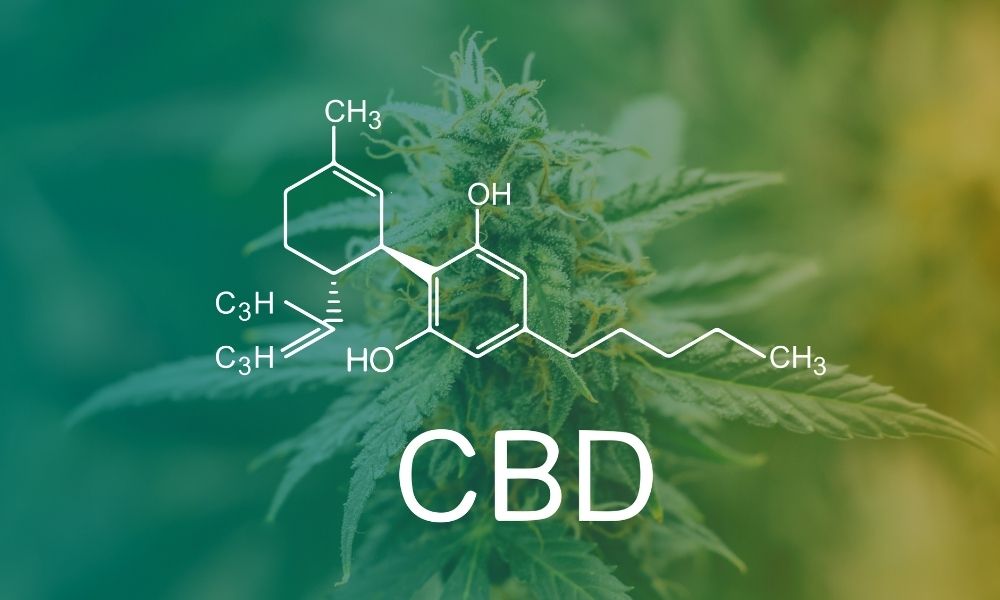The Difference Between CBD and CBG
January 26, 2021

Cannabidiol (CBD) and cannabigerol (CBG) are both cannabinoids found in cannabis plants. Both are non-intoxicating compounds that will not give users a “head-high” or euphoric feeling. They have many similarities, but what is the difference between CBD and CBG?
What is Cannabis Plant?
Cannabis plant is a large family of flowering plants that includes three species, Cannabis sativa, Cannabis indica and the Cannabis ruderalis. Sativa is best known for producing psychoactive levels when consumed by humans. The Sativa cannabis strain has less cannabiniods than the Indica strain which makes it unfit for medical purposes. Indica is known for being best used as a medical treatment.
Sativa is most commonly recognized by its long, thin leaves and tall height whereas Indica is recognized by its short, fat leaves and low height. Cannabis ruderalis is the smallest of the three strains with the lowest levels of cannabiniods making it nonpsychoactive.
All Cannabis plants contain a unique family of compounds called cannabiniods. The two primary cannabiniods in cannabis are THC and CBD. Both play important roles, but each serves a different purpose. For example, THC is the psychoactive compound while CBD is an anti-inflammatory and anticonvulsant.
Cannabis plants and CBD
CBD, or cannabidiol, has become a popular ingredient in wellness products. CBD acts on cannabinoid receptors located throughout the body and brain. CBD is made from hemp, a type of cannabis sativa. It acts on the brain without a high and is legal in the US. The longer that a cannabis plant matures, the more chance there is that the CBGA and CBG present in the strain will be converted into other cannabinoids.
CBG VS CBD. What is the difference?
Cannabigerol, or CBG, is a lesser-known cannabinoid found in the cannabis plant. There is still much we do not know about CBD and how it affects our bodies and brain chemistry. CBD also has interactions with CBD receptors throughout the body. CBD converts to THC when heated by the human body which is where psychoactive properties come into play. CBD is often used for its anti inflammatory and anticonvulsant properties while CBG has not been studied as extensively to prove it's medical benefits like CBD. CBD is also legal in the US and CBD oil can be purchased at many wellness stores or online CBD retailers. Both CBG and CBD are non-intoxicating cannabinoids that potentially boast antioxidative, neuroprotective, and analgesic properties.
There are over other forms of cannabiniods in the cannabis plants not found in CBD oil. CBG VS CBD are 2 of them. CBD is a more popular choice for CBD oil because CBD interacts with receptors throughout the body to support a variety of functions such as sleep, immune system health, stress relief, etc... CBD has been studied much more extensively than CBG which makes it easy to find CBD oil with CBD extract. CBD is a popular choice for CBD extract because CBD has been studied extensively and CBD interacts with the body's endocannabinoid system to help maintain homeostasis. CBD helps restore balance in your endocannabinoid system.
Both CBD and CBG have their own benefits but CBD is known for being one of the best CBD oils because CBD interacts with receptors throughout the body to support a variety of functions such as sleep, immune system health, stress relief, etc... CBD has been studied much more extensively than CBG which makes it easy to find CBD oil with CBD extract.
What Is CBD?
CBD stands for cannabidiol, a compound found in hemp plants. CBD, which stands for cannabidiol, naturally occurs in high concentrations in hemp and cannabis plants. CBD molecules have a relatively low affinity for receptors, but they work through indirect interactions with our bodies’ endocannabinoid system (ECS). These interactions help regulate various physiological functions dealing with muscles, immune cells, skin, and other organs. CBD can also mitigate feelings of anxiety and depression and alleviate some cancer-related symptoms. Research is relatively sparse regarding the therapeutic benefits of CBG, when compared to the apparent wealth of information available on THC and CBD within the cannabis science community.
What Is CBG?
CBG is another non-intoxicating phytocannabinoid with similar benefits to CBD. One of the most significant differences between the two compounds is that CBG plays a central role in the development of CBD, THC, and other compounds, as it can convert into other plant-based cannabinoids. CBG can also bind to both CB1 and CB2 receptors within our endocannabinoid system (ECS), unlike CBD.
CBG is also available in low levels within a mature hemp plant, unlike CBD. Because of this, it takes much more effort to extract CBG in comparison to CBD. This means cultivators must harvest hemp before it fully matures or grow enough hemp plants to yield a significant amount of CBG during the extraction process. You can get the benefits of CBG by using pure CBG oils. However, CBG oils are rare and expensive.
Which Is Better?
Determining which compound is better depends on your needs rather than the compound itself. As previously mentioned, CBD often interacts with your body’s ECS indirectly. However, this interaction usually involves CB2 receptors, which connect to the peripheral nervous system (PNS). The PNS reaches various muscles, limbs, skin, and other biological systems, including the immune system. CBG benefits also attaches to CB2 receptors in addition to CB1 receptors, which connect to our central nervous system (CNS), including our brain and spinal cord.
CBD and CBG both offer benefits individually, especially when seeking to target the peripheral nervous system with CBD or the central nervous system with CBG. CBD and CBG also work well together to enhance each other’s benefits.
The differences between CBD and CBG mainly lie in how they bind to cannabinoid receptors. Visit Black Tie CBD to learn more about CBD and CBG flower for sale.

